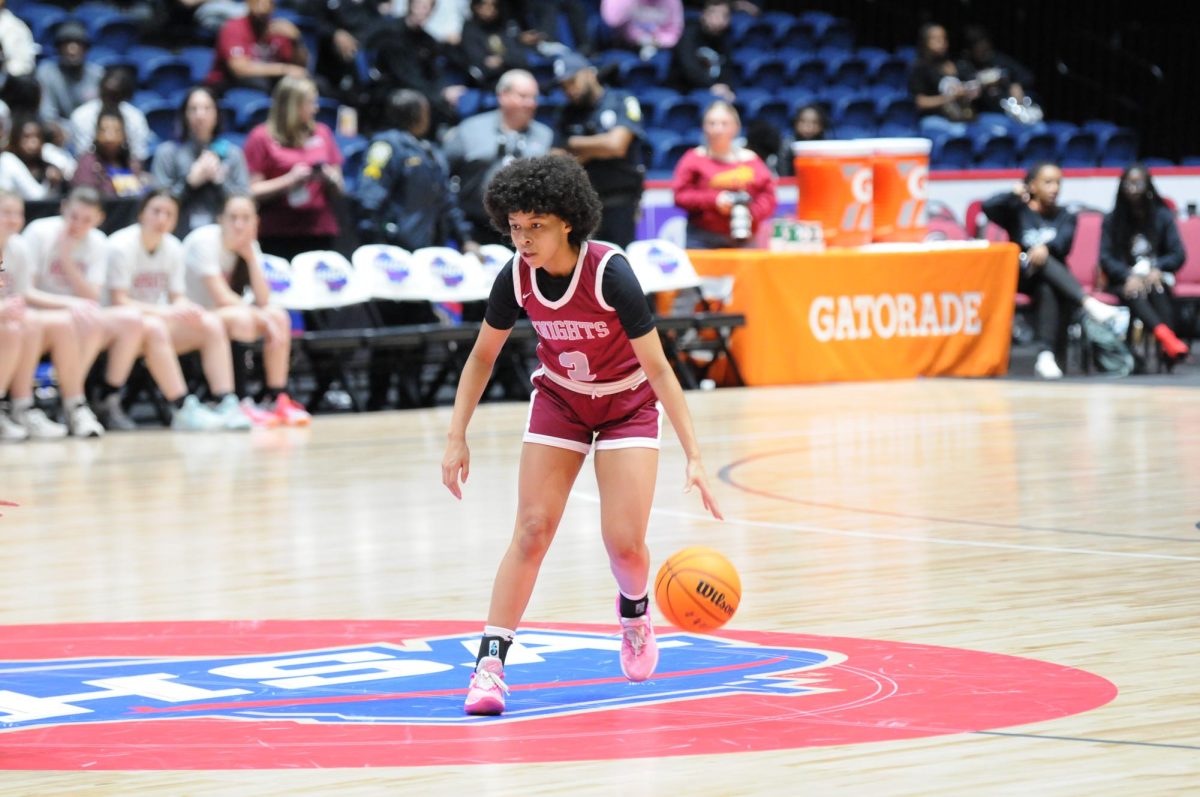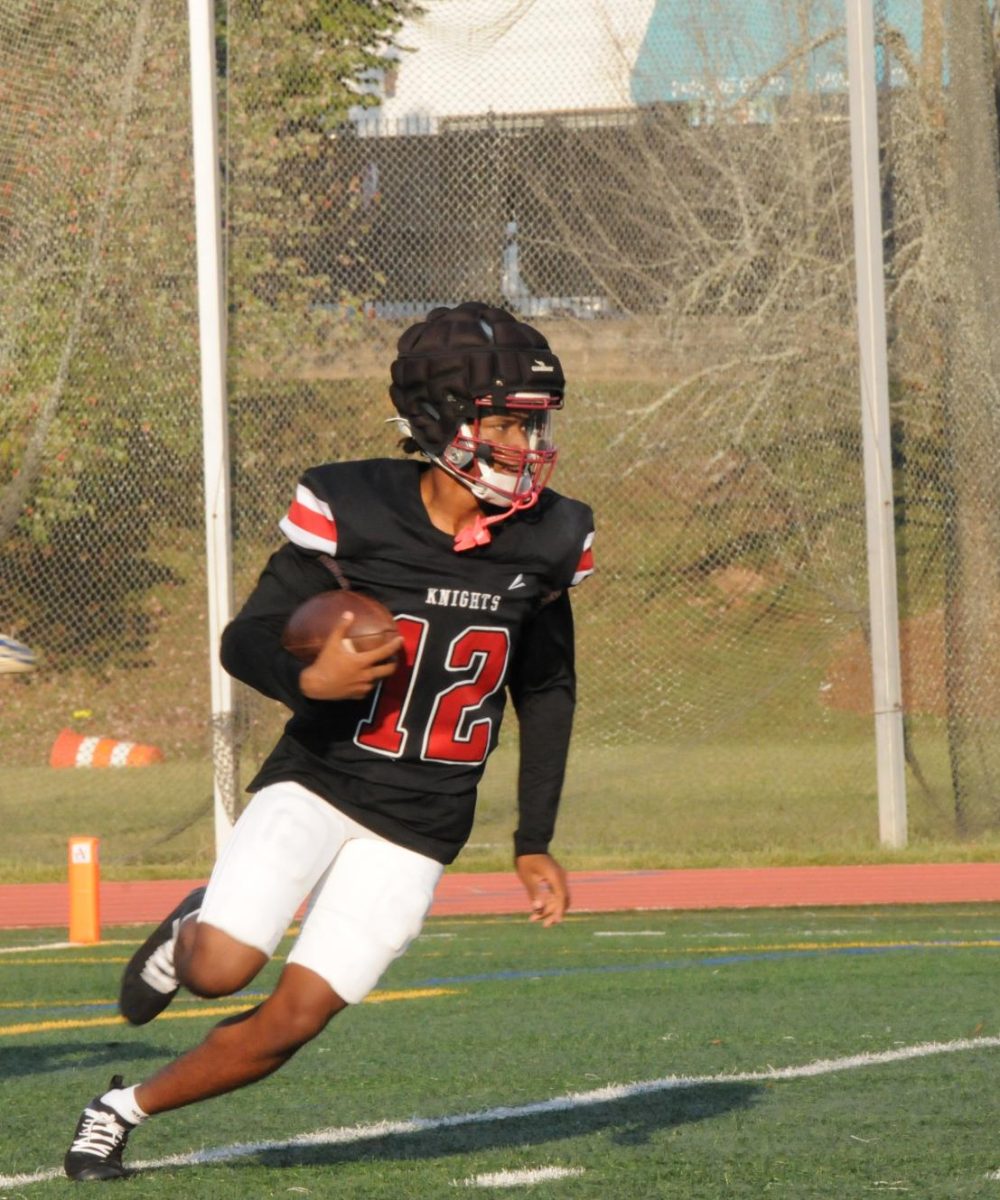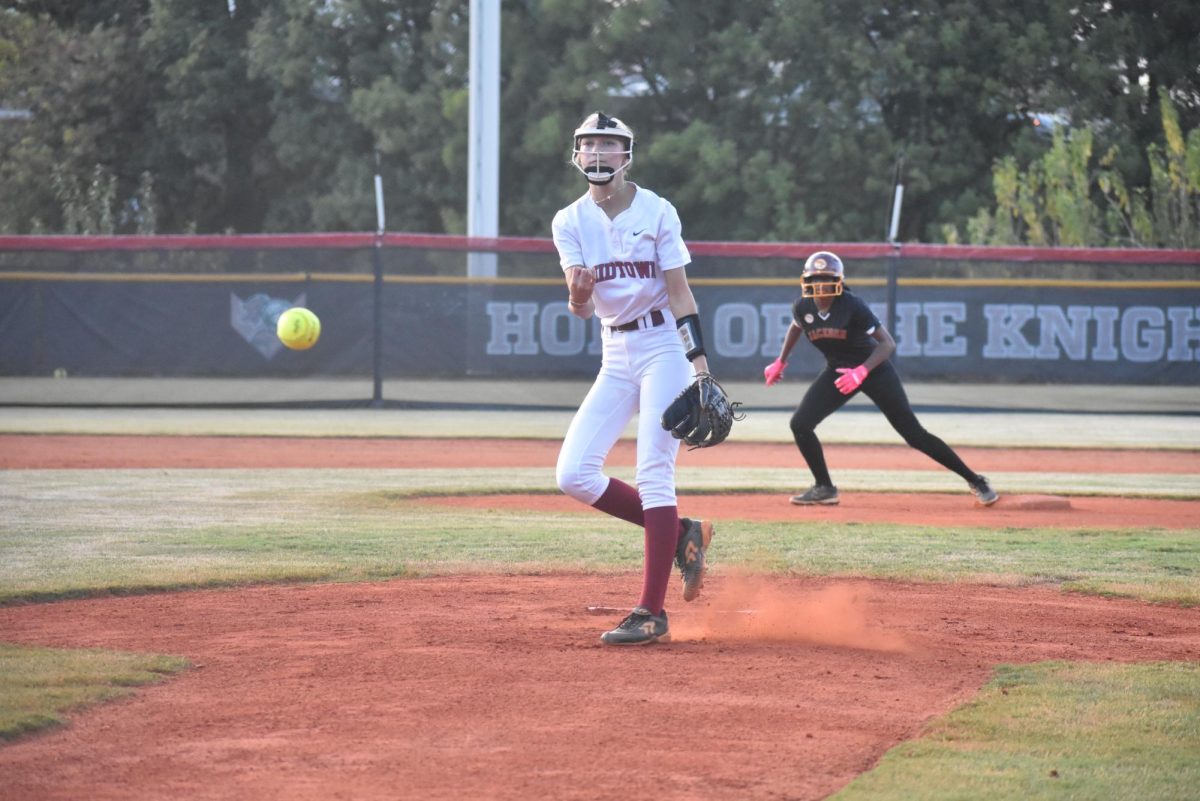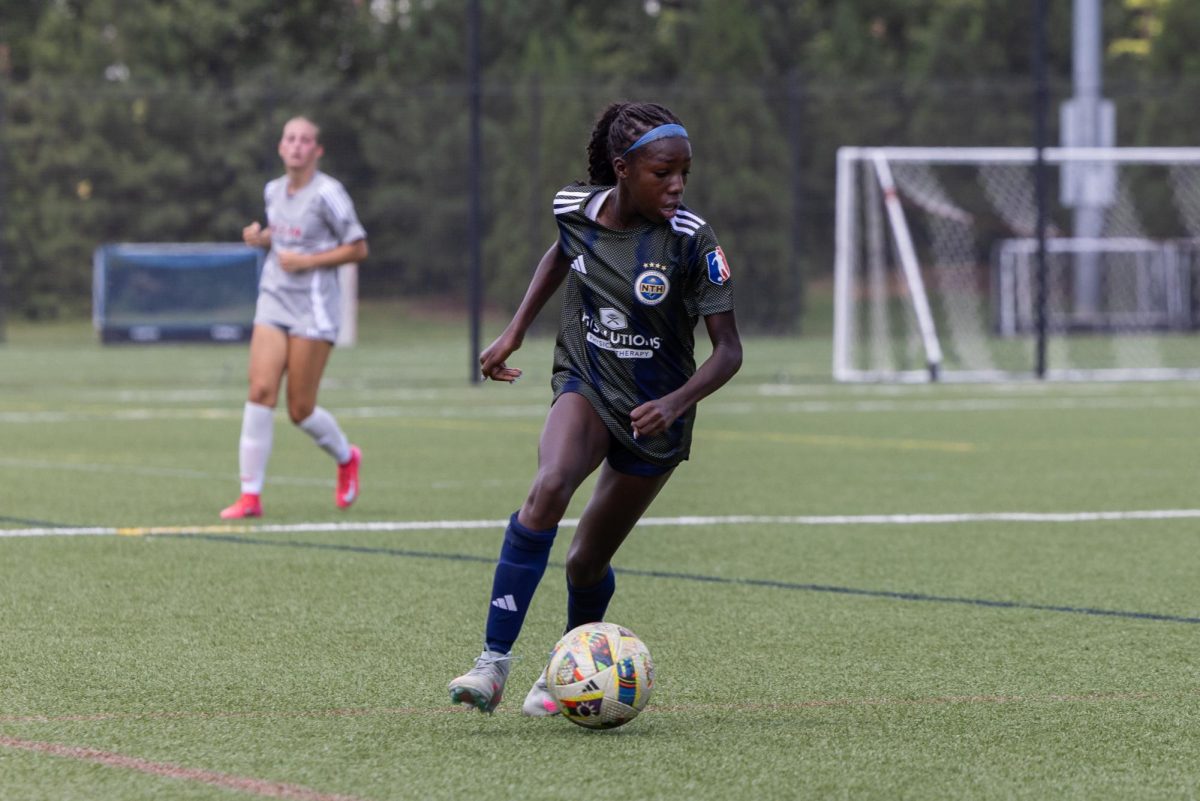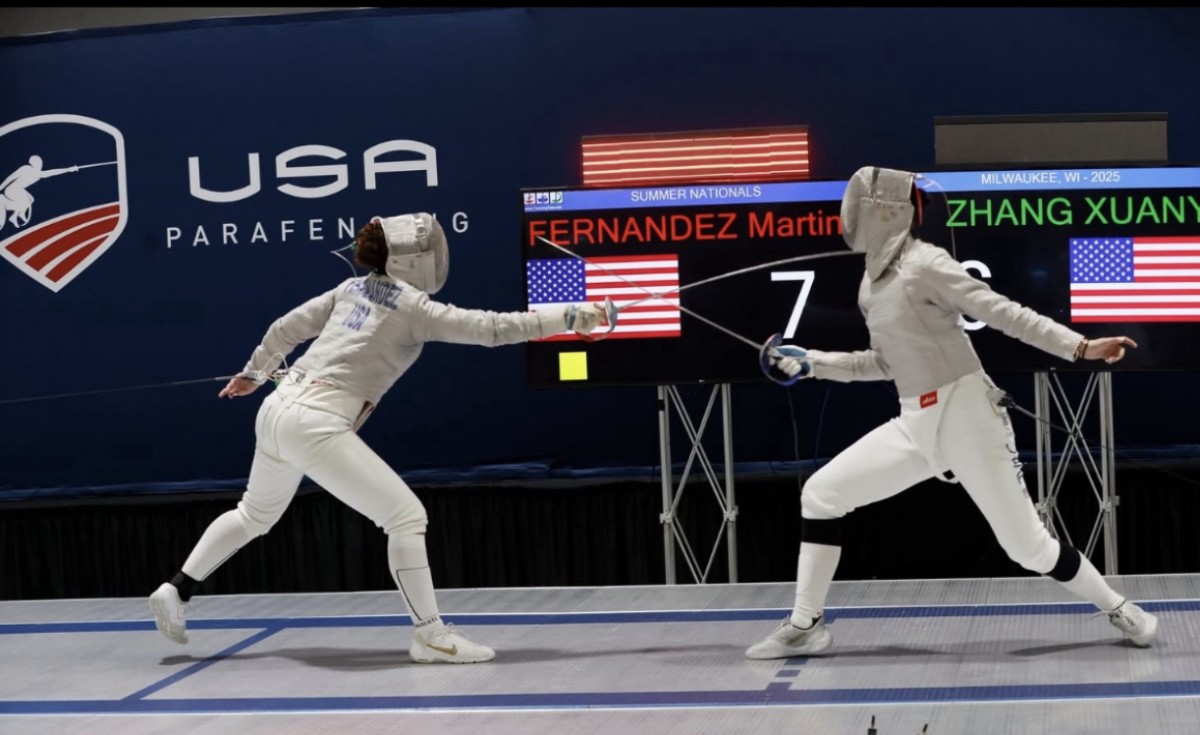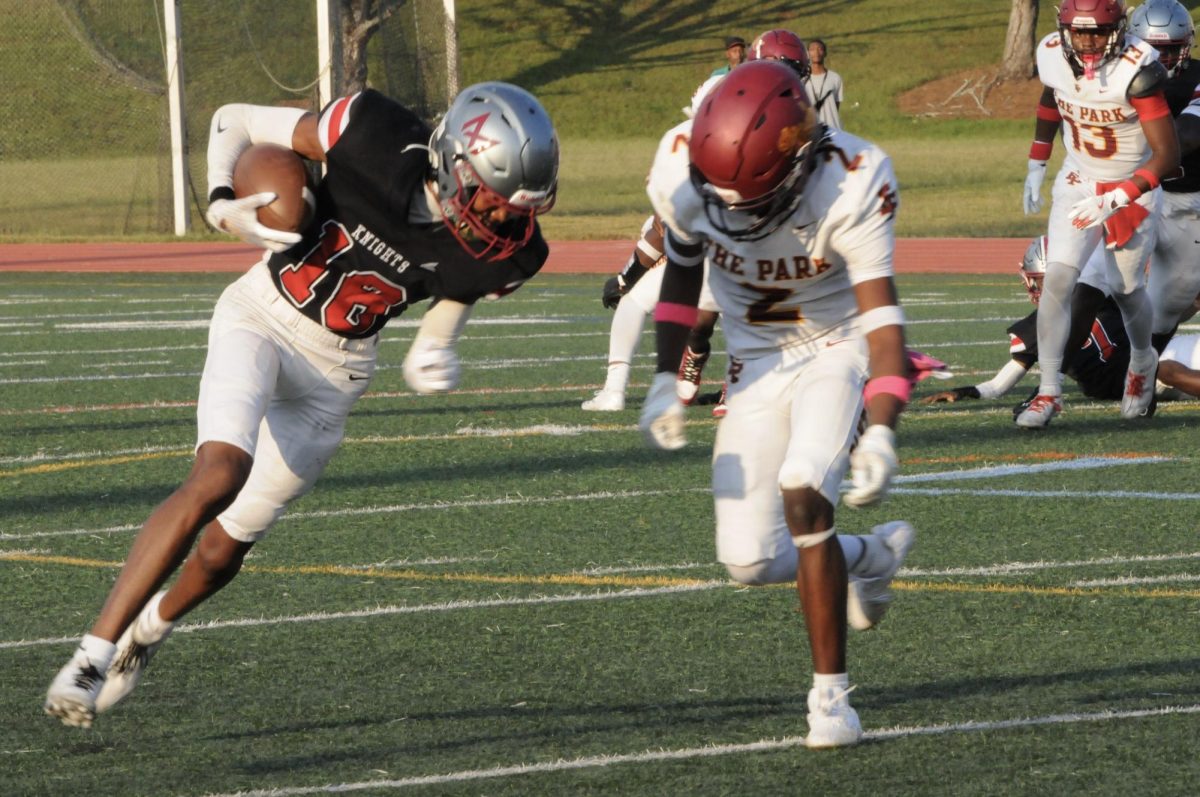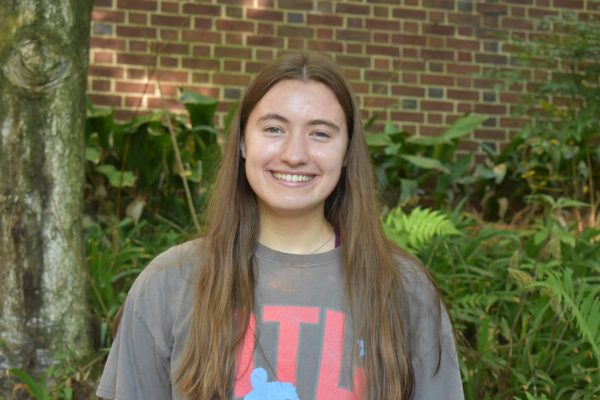GHSA is considering a new proposal for reclassification in 2026. Instead of only taking into consideration enrollment, GHSA would also look at overall success of sports teams at schools. Under this method, each sport is assigned a point value that would help average out school success.
In the current system, the only indicator in reclassification is enrollment. The total number of out-of-zone students who attend each school is multiplied by 3.0, bumping schools with large numbers of out-of-zone students to a higher classification.
“The private schools are having to move up classifications because of the [out-of-zone] multiplier, which counts each [out-of-zone] student as three times as much as a regular student,” assistant football and head wrestling coach Calvin Arnold said. “They’re having to move up and play teams that are bigger than them. So, they’re not at a disadvantage, I would say, but it evens the playing field a little bit.”
Dr. Bobby Brewington, who was once the head boys track coach and assistant basketball and football coach at Grady and is currently a GHSA Executive Committee Member for Region 5-AAAA and is on GHSA’s Board of Trustees, said this multiplier was placed because private schools may have higher success rates.
“Private schools may have a smaller population, but because they have more resources, they have an advantage and actually compete well against public schools that have a much higher student population,” Dr. Brewington said.
Senior girls lacrosse player Charlotte Keenan said organizing the classifications based on size is important because it ensures that the player pool chosen from is similar in size.
“Larger schools, obviously, have a bigger number of people to pick from than in smaller schools,” Keenan said. “If you need 20 people for a team, you’re likely going to have a better 20 when there are 2,000 students at the school than you would when there are only 400. This makes it so that the schools with more options are competing against other schools in the same boat as them.”
Dr. Brewington said the problem with this system is there isn’t always the same participation of players at the same size schools.
“If you go to a school of 2,000 students, you may have 500 that do sports, but then you may have a school of 2,000 students and only 150 kids do sports,” Dr. Brewington said. “Schools that may be magnet programs or more focused on academics wouldn’t be as competitive.”
With the new system, reclassification would take into account the success of schools with the reorganizing of classes that occurs every two years. In this, the top five and the bottom five teams based on school success from each classification would move up or down a classification every two years.
Dr. Brewington said GHSA has looked at systems across the country and is trying to find the most efficient and uniform way of organizing schools.
“What’s happening is, and not just in Georgia, but across the country, they’re looking at other ways to kind of level the playing field,” Dr. Brewington said. “That’s why Georgia is looking at a new way of reclassification. Also, the process, to a certain level, can be very political and favor certain schools that have advantages.”
Each sport is assigned a point system based on the participation numbers across the state, with the exception of football because it is the highest-grossing revenue sport. Aside from that, each team receives points based on the percentage of schools that have that team in Georgia.
“I think the new system is definitely flawed because of the way things are balanced,” Keenan said. “Some schools might have football teams that aren’t as strong as other sports at the school, but because football is considered more, it would lead to the stronger sports having to play easier competition and not having a challenging season. The balance between the sports, if not done correctly, could cause a lot of unfairness to the lesser-weighted sports.”
Arnold said he is concerned about the cost of reorganizing the classifications using the proposed method. He said the teams that don’t have many schools close by would have to increase travel to play ‘even’ teams.
“Everything’s going to be based on travel because if your team is not good and you’re having to play a team that’s the same level as you and, you may be more than a 100 miles away from each other,” Arnold said. “That’s going to be the biggest difference, and it’s going to cost a lot of money trying to schedule teams who are on the same playing field as you.”
Dr. Brewingston said this system would benefit teams that are struggling in the current classification, helping level them against teams that are equal to them. This would also benefit schools that are continually good at sports, making sure they’re placed against difficult competition.
“If you have a school that wins five football games in four years, that school would continue to move down until their total points for that school are pretty much even with other schools in the classification, and now that school becomes more competitive,” Dr. Brewington said. “Schools that are already very competitive, they’re starting to be grouped with schools that are pretty much on the same competitive level.”
There are many possible levels of this organization. Dr. Brewington said one variation, where the teams can be separate from others at the school, would be flawed.
“I first learned about this [success model] several years ago, and I think there’s several models of it,” Dr. Brewington said. “For example, there’s one model where each team in the school is placed either in a region or an area. So, different sports can be in different regions, but I don’t think that’s logistically good for Georgia.”
Boys track head coach Del Ellerton, who Dr. Brewington coached while at Grady, said that, no matter what, people will find complaints about the organization of teams in classifications, and the enrollment is the best way for now.
“Enrollment is the least headache way to go about doing it,” Ellerton said. “But, no matter what you do, there’s always going to be someone that’s not going to be happy, and it’s not going to fully address the perceived problem. But at least GHSA is going outside of the box to look at different ways to try to make it more competitive.”

